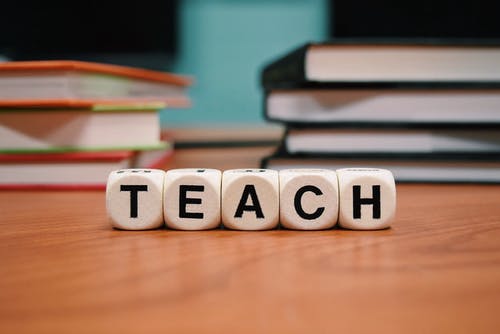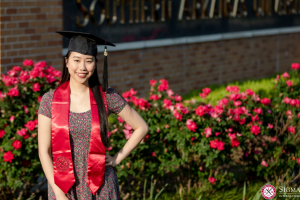Being an Educator in a 2k21 COVID-19 Environment
by Jennifer Williams
Many educators were solely in-classroom instructors until the pandemic hit. It created a wave of uncertainty in education. It affected everyone, even those of us who were always online educators. I began teaching as an asynchronous educator in 2008. I have experienced about eight different learning management systems over the years, but the leaps and bounds really came in 2020. When everyone was forced into online learning, significant time was invested by the greatest minds in how to make things work better, easier, smarter, and more succinctly.
Between the years 2008-2020, I was only ever asked to record learning videos to supplement the classes I taught. New requirements to add synchronous live lessons to classrooms were brought in to help students who were feeling disconnected. These implementations have really improved the learning environment. I will be the first to admit, adding a synchronous element to asynchronous classrooms was a challenge at the beginning. Often students would disclose traumatic life situations that brought everyone in the class together.
I read an article by Marcella Bombardieri from April of this year, and it notes, “Millions of students have to be supported to catch up academically and process trauma, something that educators say will take several years” (2021). I resonate with this sentiment because beyond the connections that are being made, students and faculty are facing trauma that they have never experienced before. There have been obvious gains, such as millions of students with access to technology, but it has also shined a light on economic disparities that exist across our nation and the fleeting necessity of structural improvements across all systems of education.
Where does this leave us? We will apply the lessons learned and move forward intelligently and improve upon the systems we do have and incorporate new systems. What I personally discovered as an educator was the need for professional mental health resources being available to all my students. Also, as Bombardieri notes:
“We learned over the past year how vulnerable college students are. Unless they have groceries, a computer and Wi-Fi, would-be college students don’t show up to campus at all—imperiling their chances of ever reaching the middle class. More than one in five college students have their own children, and the pandemic proved that lack of childcare is one of the biggest barriers to college attainment.”
What I would tell my students is just mute and/or turn off your camera if you are feeling the stress of your personal life hindering your education. I would also record the synchronous lectures so that if a student felt that they really could not handle logging in, they would not miss the content that was provided.
What I most learned? Empathy. I have always been an empathetic individual, but this was heightened during the pandemic because everyone is dealing with a new form of normalcy incomparable to past experiences. Whether it is trauma due to death, cognitive overload, stress from being a front-line worker, the best response was always the same: be empathetic to the needs of my students. With the increased empathy awareness, I have been able to maintain some normalcy within the online classroom.
Work Cited
Bombardieri, M. (2021, April 19). Covid-19 changed education in America — permanently. POLITICO. https://www.politico.com/news/2021/04/15/covid-changed-education-permanently-479317
 Jennifer Williams obtained an MA in Communication Studies specializing in Managing Conflict from Edinboro University of Pennsylvania in 2006. She has been working in Higher Education since 2005, beginning her journey as a graduate assistant in organizational communication at Edinboro University of Pennsylvania. She has chaired educational panels at the Golden Fleece Storytelling Conference, Academic Success Conference at Maricopa Community Colleges, and the National Communication Association Annual Convention. Currently, Jennifer is the Assistant Dean of the Online Division for Brookline College, and Unitek Learning.
Jennifer Williams obtained an MA in Communication Studies specializing in Managing Conflict from Edinboro University of Pennsylvania in 2006. She has been working in Higher Education since 2005, beginning her journey as a graduate assistant in organizational communication at Edinboro University of Pennsylvania. She has chaired educational panels at the Golden Fleece Storytelling Conference, Academic Success Conference at Maricopa Community Colleges, and the National Communication Association Annual Convention. Currently, Jennifer is the Assistant Dean of the Online Division for Brookline College, and Unitek Learning.
On Keeping A Journal
by Peggy Sue Wood
When I was in high school, keeping a planner and writing journal entries was a mandatory process.
If it wasn’t a requirement for homeroom, where our teacher walked about and scanned the pages for information on homework, or a well-intentioned English teacher trying to get us angsty teens to write something on a page—it was some other form of required record keeping about our lives.
When I entered college, I was dead-set on NOT keeping a planner . . . only to quickly turn into a planner-carrying, journal-designing advocate What made me start journaling was my necessity to keep track of homework deadlines. However, what made me continue to do so as I left school was how useful it became in my day-to-day life, and the story I am about to tell you all here:
On my father’s side of the family, there is a copy of some old journal that a great grandmother of mine wrote, which another family member typed up and had bound with a handful of copies made to be shared at reunions and read. Inside is a very telling and inspiring journey of their travels from the East Coast to the Central West. They left late in the year, nearer to winter than they had planned, and became trapped in the mountains, unsure of how they would survive. Wolves bit one or more of the horses, so they had to kill and bury them. The food ran out quickly, and the party soon became starved (though, thankfully, they never had to resort to cannibalism like the Donner party). I vaguely remember her writing about adopting an orphan boy who had made it to their group after his parents had died in a camp somewhat higher up the mountain and her recipes, like that of leather-belt soup. Her writings are filled with this collection of moments that are peaceful, joyous, sorrowful, or fearful. There’s a lot in this giant journal, and it’s the sole record of those dire months in which it becomes clear how much each member of the party played a role in their continued survival.
However, what I really remember is the ending, wherein she tells her descendants that she plans to keep this journal to let them know that no matter how hard things get, you can pull through before writing that she’s left a few pages at the back for her husband to share his thoughts on that period of their lives. To which he only wrote:
“It was a damn cold winter.”
So, for posterity’s sake—I keep a journal and I encourage all of you to do so as well. I don’t know if it will be as funny as I found my some-far-back great grandfather’s note, but at least it will be a record that—hopefully—makes the one who reads it in the far-off future feel a little less alone, a little more okay, and perhaps even spark a small chuckle.
 Peggy Sue Wood is the current Alumni Epsilon Chapter’s President as well as a freelance editor and writer in the Greater Los Angeles Area. Before becoming a freelancer, Peggy studied English Literature and Creative Writing at Chapman University in Orange, CA. In her free time, she writes and publishes notes, tips and tricks, and other information on what she’s learned about writing and publishing, free-of-charge for those interested in entering the field of editing/writing or looking to improve their understanding of the industry. To learn more, you can visit Peggy online at peggysuewood.com.
Peggy Sue Wood is the current Alumni Epsilon Chapter’s President as well as a freelance editor and writer in the Greater Los Angeles Area. Before becoming a freelancer, Peggy studied English Literature and Creative Writing at Chapman University in Orange, CA. In her free time, she writes and publishes notes, tips and tricks, and other information on what she’s learned about writing and publishing, free-of-charge for those interested in entering the field of editing/writing or looking to improve their understanding of the industry. To learn more, you can visit Peggy online at peggysuewood.com.
Good Reads Group for Alumni
By Dana Eckstein Berkowitz
Join Alumni Epsilon on our very own personal Goodreads group! Goodreads is the world’s largest site for readers and book recommendations.
If you’ve never used Goodreads before, you can use it to build your own library of books you’ve read, curate your to-read list, and see what your friends are reading.
Our group page is a great spot to meet other members of Alumni Epsilon online and see what they’re reading. You may just find a friend based on a shared reading history of your favorite book.
We’ve also added a bookshelf to feature books written by Sigma Tau Delta members. Check out The Inconvenient Process of Falling by Katie Neipris and Knock-Off Monarch by Crystal Stone. Have you written a book? Let us know and we’ll add it!
We will also be hosting regular discussions. Join now to add to our conversation on the question, “What’s your favorite book on writing?”
I can’t wait to see you there!
 Dana Eckstein Berkowitz received her BA in English from the University of Hartford in 2013 and her Masters of Library and Information Science from Rutgers University in 2017. She writes poetry, fiction, and drama. Her work has appeared in Words Apart Magazine, the Sigma Tau Delta Rectangle, Inkblot, and Aerie Magazine. She has presented at every Sigma Tau Delta convention since 2013 and previously served as Communications Chair and Treasurer of the Alumni Epsilon Chapter. Her short story “En Pointe” won the Alumni Epsilon convention award. She also plays the ukulele, and you can hear her at convention playing songs and musical bad poems. She is passionate about libraries, tea, flowers, and her cat.
Dana Eckstein Berkowitz received her BA in English from the University of Hartford in 2013 and her Masters of Library and Information Science from Rutgers University in 2017. She writes poetry, fiction, and drama. Her work has appeared in Words Apart Magazine, the Sigma Tau Delta Rectangle, Inkblot, and Aerie Magazine. She has presented at every Sigma Tau Delta convention since 2013 and previously served as Communications Chair and Treasurer of the Alumni Epsilon Chapter. Her short story “En Pointe” won the Alumni Epsilon convention award. She also plays the ukulele, and you can hear her at convention playing songs and musical bad poems. She is passionate about libraries, tea, flowers, and her cat.








Hello Mrs Williams thank you for sharing your different learning styles. These are a great tool to use and have a huge impact on student success.
Hello! Ms. Jennifer Williams.
I appreciate your topic about allowing the students to mute or turn off their cameras if they are under stress, or their children in the background are making a lot of noise during our online class. Being an empathetic individual helps me reached out to my students that they are not alone. I’m here to help them, guide them and encouraged them to succeed in life. Communication is very important.
Hello! Ms. Jennifer Williams.
I appreciate your topic about allowing the students to mute or turn off their cameras if they are under stress, or their children in the background are making a lot of noise during our online class. Being an empathetic individual helps me reached out to my students that they are not alone. I’m here to help them, guide them and encouraged them to succeed in life. Communication is very important.
I think our student deserve the opportunity to change their learn style and it may take longer for some more than others. Thank you for the great information
This was really great. I have done some journaling all of my life in some form or fashion along the side of the work I have done as a director and as a member of a what I have felt as very complex family. I have never thought of sharing as some of my thoughts were too intense and personal. but this is pushing me to re-think my reasoning. Thank you for sharing this.